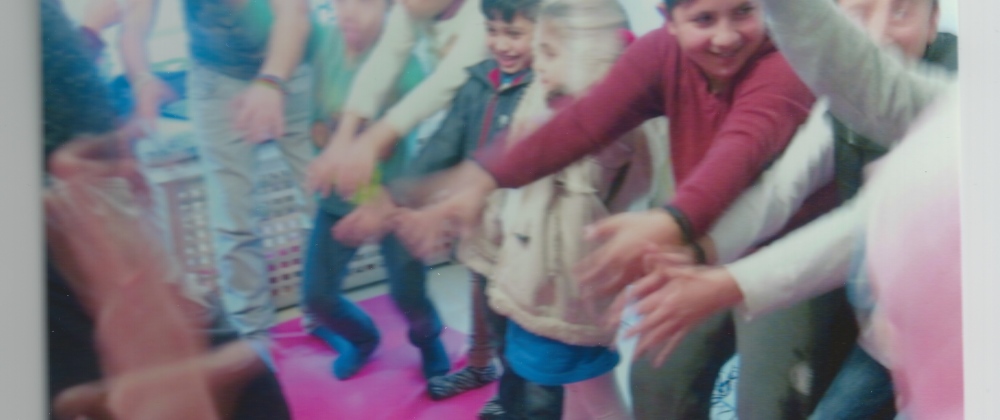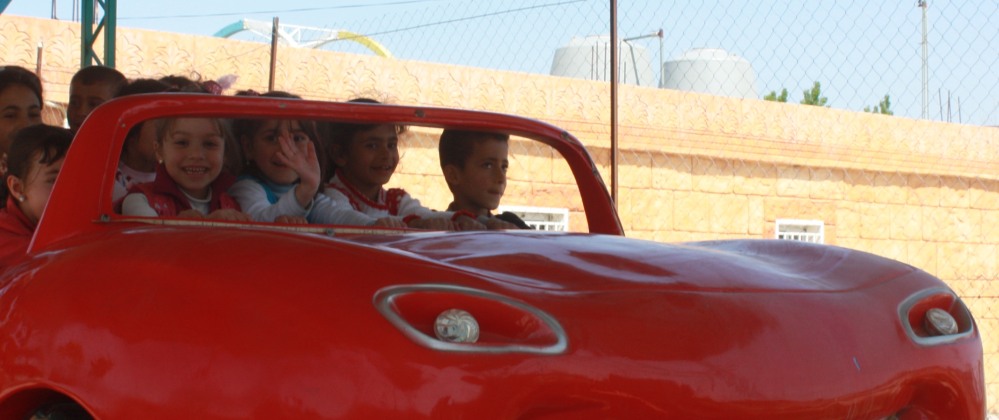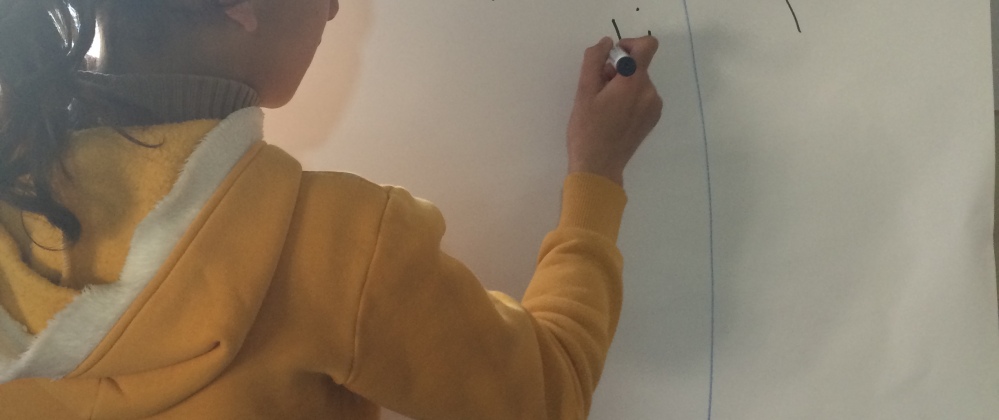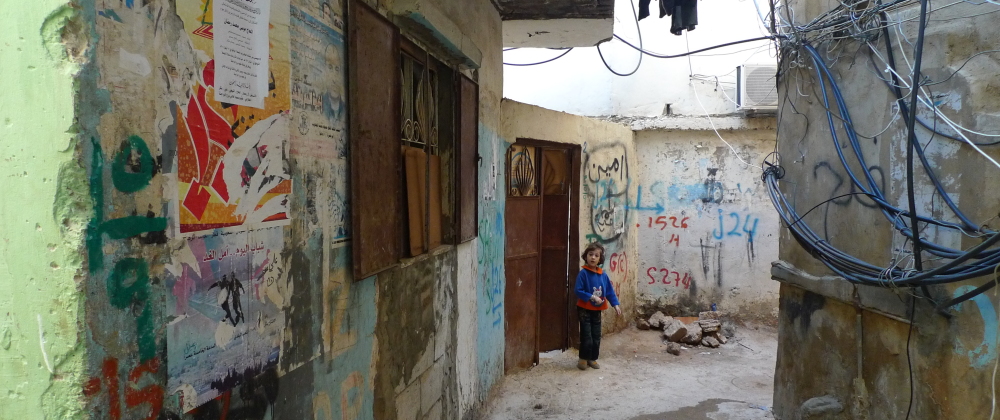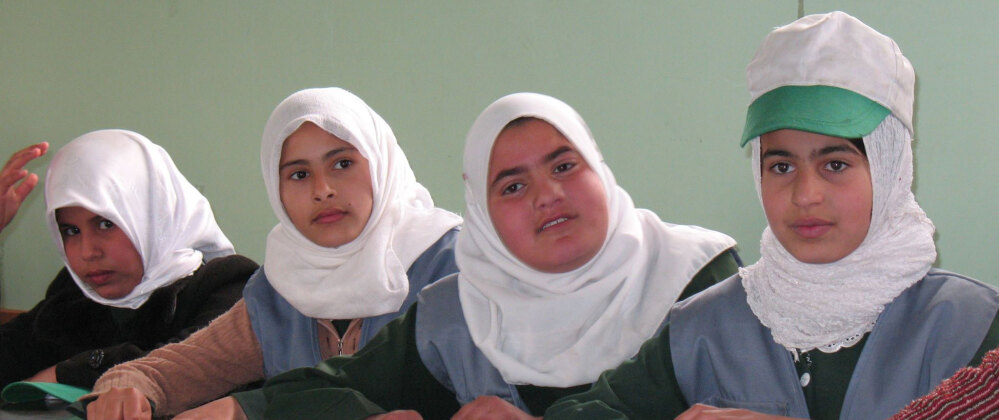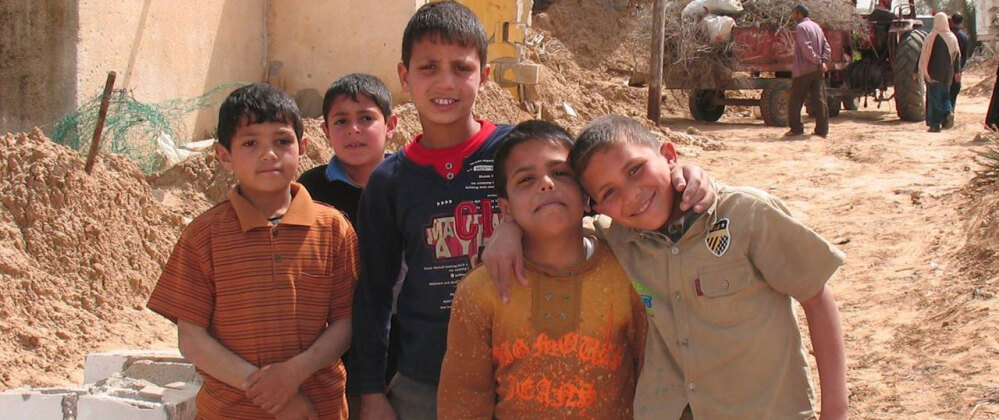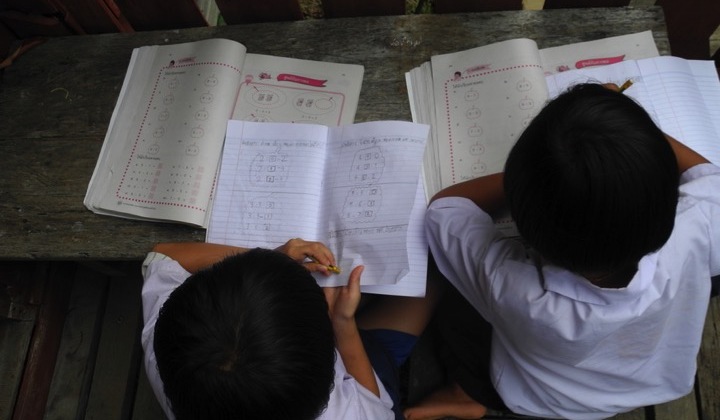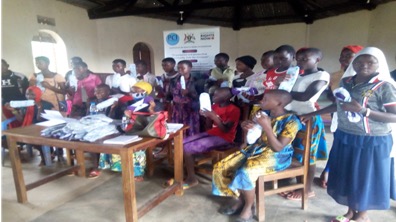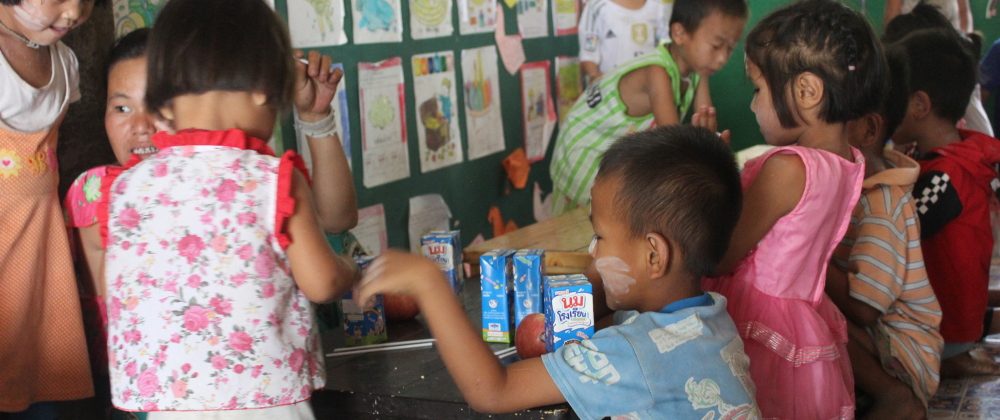
Children of Lahu – preschool is a hub for growth in northern Thailand
We visit a preschool in a village in Mae Ai district, northern Thailand. The villagers belong to the minority group Lahu. A minority of which several are without citizenship, even though they were born in Thailand. They speak a language that is not in writing. They have no or little knowledge of human rights and no real access to medical care. This is a preschool Rights Now supports – to provide access to education and thus a chance for children of Lahu to create their lives and assert their rights as Thai citizens.
A day at the preschool
We arrive at the end of the day. Children stand in line to get a fruit before they go home. After closing, kids are running around and playing. In and out of bambu huts that are built on stilts with a rickety ladder up to the entrance and with an open hearth cooking place. They run up and down the hills, and their skin becomes reddish from the lightly iron colored sand. Pigs, chickens and dogs walk freely around the village. It is visible poverty by many standards.
In the preschool 39 children aged three to nine years have access to a safe and creative environment where they can practice Thai and numbers. Their parents will be able to work in the fields without having to worry about their kids. Walls in the school are filled with drawings and various creations made by the children. It is a room full of knowledge, creativity and joy. In addition to math and writing exercises, children are served one nutritious meal a day. The children get along with their teachers and learn about hygiene, washing clothes, and knowledge of nutrition. Together, they have planted a vegetable garden to enhance school lunches. If the harvest is good, the children take the vegetables home.
Dreaming of development
The teacher says that she dreams about evolving the school even more, to use new teaching methods and provide the children with more opportunities. For them to take advantage of their dreams and develop their talents. She tries to work with educators at other schools. The village also has a “non-formal school” whose teachers do not always have the chance to come to the village because of other engagements. That is a non formal school; No guarantee that a teacher is present. That is how it works when you do not know your rights when you are not a formal citizen, when you partially live outside the formal society and lack knowledge in the formal and written language. When the teacher from the non formal school is not able to come to the village – the preschool teacher even teaches the schoolchildren. She sees needs and takes advantage of every opportunity.
Language, health and confidence – how children grow
After the preschool opened, the children have not only gained an entrance into the Thai language, several children have better health status and self-confidence. Parents have greater opportunities to take the jobs offered to support the family. The preschool has made a clear difference to the whole village, where 78 families live. All of the children can not participate, some need to follow their parents into the fields. Teachers and teacher assistants try to have a dialogue with the parents about the importance of children being in preschool and school.
During the conversation with the teacher and teaching assistant a man steps into the school building. He walks around the room, trying to listen in on our conversation. After a while the teacher explains that he is the “head of village”. He has heard that someone from the Rights Now Foundation is in the village. And, he would like to thank Rights Now of behalf of the entire village. The preschool means so much. Even small means changes the lives of children, parents and families. Provided a greater chance of a life beyond the village, if you will, a life with a greater chance of being free of diseases and to have enough to eat. A chance for more opportunities for people of Lahu.
As told by Karolin Kral, Boardmember of the Rights Now Foundation, visiting the preschool in northern Thailand.
